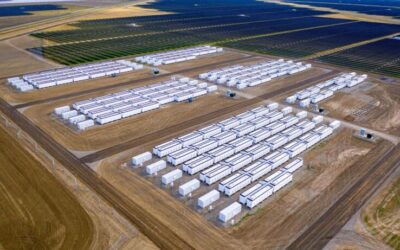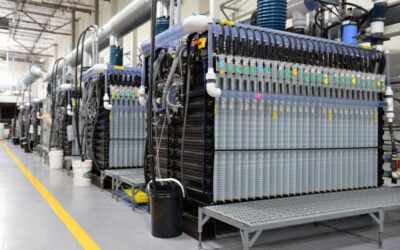
Projects being delivered for the University of Hawaii will allow various campus buildings to eliminate 70% to 100% of fossil fuel use as the state races towards its 100% renewables by 2045 target.
Six of the University’s campuses are being fitted with solar-plus-storage systems. One of them, UH Maui College, is expected to go entirely, 100% fossil fuel-free when its solar-plus-storage system is completed and connected next year. Five campuses on another of Hawaii’s islands, O’ahu, will be able to reduce their fossil fuel usage by percentages of 98%, 97%, 74% and 70%.
Asset management group Pacific Current, engineering and technology supplier Johnson Controls, which manufactures batteries, microgrids and storage systems, has signed a multi-phase agreement with the University on renewable energy and energy efficiency measures. This is in part supporting UH and the local government’s own agreement that the University will be ‘net zero’ energy i.e. producing more renewable energy than overall consumption requires, by 2035.
The first phase of that Pacific-Johnson Controls-UH agreement saw campuses fitted out with energy efficiency measures through energy performance contracts awarded to Johnson Controls in 2010. The solar and battery systems are being deployed along with additional energy efficiency upgrades in the second phase.
Try Premium for just $1
- Full premium access for the first month at only $1
- Converts to an annual rate after 30 days unless cancelled
- Cancel anytime during the trial period
Premium Benefits
- Expert industry analysis and interviews
- Digital access to PV Tech Power journal
- Exclusive event discounts
Or get the full Premium subscription right away
Or continue reading this article for free
Johnson Controls is developing the solar-plus-storage systems, which Pacific Current will own. The energy efficiency measures alone are expected to save the University US$20 million on various upgrades and other deferred spending. The programme is expected to conclude in the second quarter of 2019.
The 100% renewable-powered Maui College will have a total of 2.8MW solar PV and 13.2MWh of battery storage systems installed, while the remaining five O’ahu campuses will reach a combined 7.7MW of PV, paired with 28.6MWh of battery energy storage distributed among them.
“With the implementation of phase two, these five UH campuses will have reduced fossil fuel energy consumption by ~14 GWh annually (45 percent) and added ~13 GWh renewable energy generation. We are proud to move the entire University of Hawai’i System closer to its net-zero energy mandate, to celebrate UH Maui College’s achievement and to position the O’ahu community college campuses within reach of 100 percent renewable energy generation,” John Morton, UH’s vice president for community colleges said.
Johnson Controls was in February 2018 awarded a contract to build a solar and battery microgrid at U.S. Army Garrison Kwajalein in the Pacific’s Marshall Islands. That project is being supported by US$40 million funding from the US government, under the Energy Savings Performance Contracting (ESPC) scheme. Meanwhile the Hawaii projects are the latest deployment of solar and energy storage in combination at US academic facilities, with other recent developments reported by this website including SimpliPhi Power delivering 1.4MWh of solar-powered air conditioning to schools also in Hawaii while the likes of Jigar Shah’s Generate Capital and Green Charge (now known as ENGIE Storage) delivering solar-plus-storage systems for schools in California last year.





